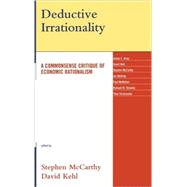
What is included with this book?
| Introduction | p. 1 |
| John Locke, Thomas Hobbes and the Development of Political Economy | p. 29 |
| Adam Smith and the Invention of Economic Science | p. 47 |
| Ethical and Methodological Foundations of Marshall's Economics | p. 71 |
| Keynes's Return to Reality: The General Theory of Employment | p. 91 |
| Friedrich A. Hayek's Economic Theory of Law | p. 129 |
| The Theory of Economic Development as Presented by Gunnar Myrdal | p. 169 |
| Rational Expectations Economics as the New Classical Economics | p. 219 |
| Appendix | p. 257 |
| Bibliography | p. 259 |
| Index | p. 275 |
| About the Contributors | p. 283 |
| Table of Contents provided by Ingram. All Rights Reserved. |
The New copy of this book will include any supplemental materials advertised. Please check the title of the book to determine if it should include any access cards, study guides, lab manuals, CDs, etc.
The Used, Rental and eBook copies of this book are not guaranteed to include any supplemental materials. Typically, only the book itself is included. This is true even if the title states it includes any access cards, study guides, lab manuals, CDs, etc.